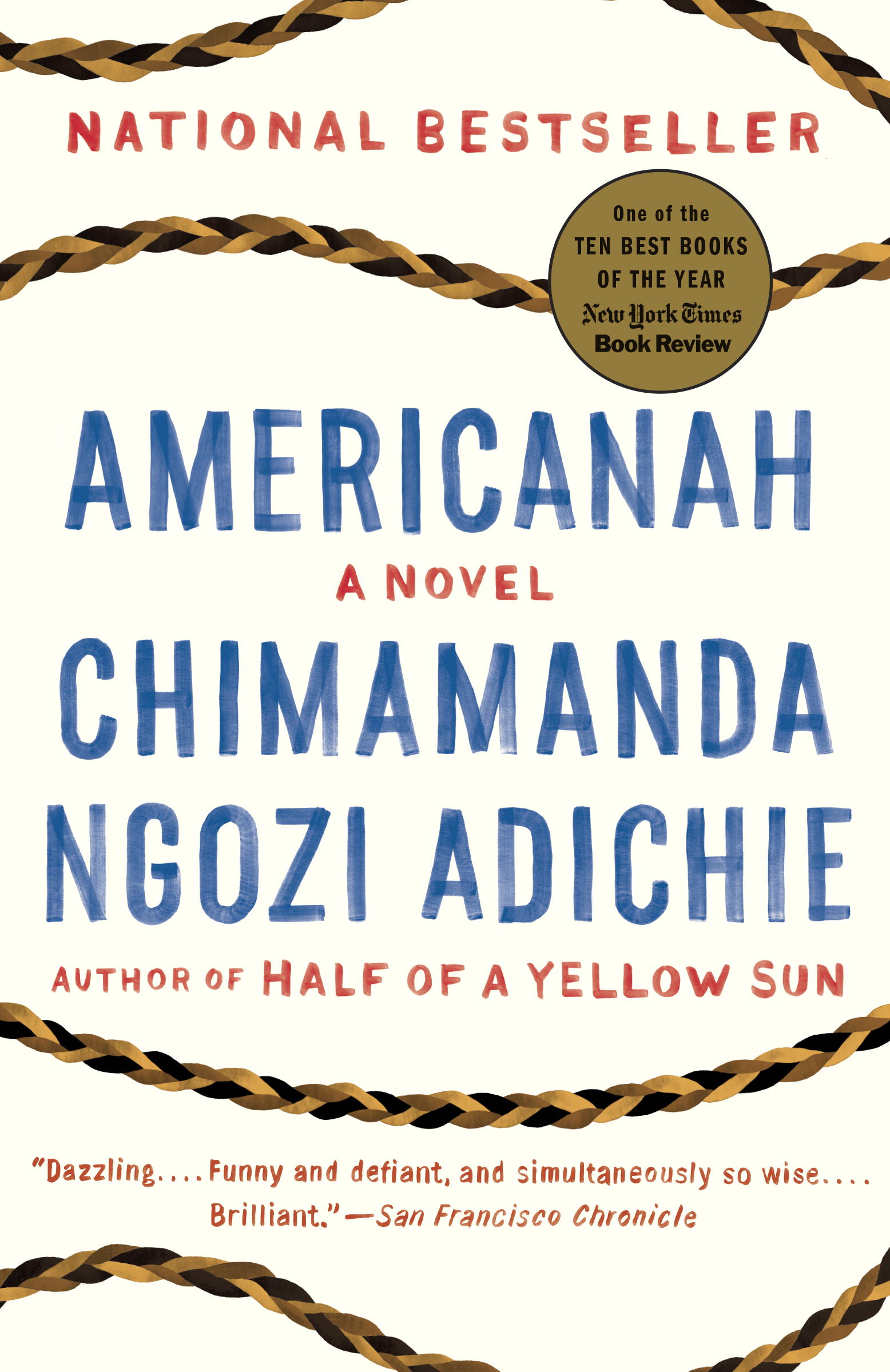In the weeks leading up to the March 13 announcement of the 2013 NBCC award winners, Critical Mass highlights the thirty finalists. Today, NBCC board member Jane Ciabattari offers an appreciation of Chimamanda Ngozi Adichie's fiction finalist, “Americanah” (Knopf).

Chimamanda Ngozi Adichie is a transnational literary phenomonon, honored with awards in the U.S., the U.K., and Africa. Nigerian-born, the fifth of six children, she was raised in the university town of Nsukka, and came to the US to study at Eastern Connecticut State University, at Johns Hopkins (creative writing), and Yale (M.A. in African Studies). She won the Commonwealth Writers' Prize for her first novel, Purple Hibiscus, a coming of age story about a fundamentalist Nigerian family (the pious father beats his wife and children in private). Her elegaic chronicle of the Biafran civil war, Half of a Yellow Sun, was an NBCC finalist and won the 2006 Orange Broadband Prize a PEN Beyond Margins award and the Anisfield-Wolf Book Award. Stories from her collection That Thing Around Your Neck have been honored with the O. Henry award. With Americanah, which is at once a love story, an immigrant’s tale, and a socially acute snapshot of this chaotic moment in time, she nails the idiosyncracies of three cultures. We knew Adichie was wicked smart. Now we know she can be wicked funny.
Ifemelu, her primary narrator, moves from Lagos to the U.S., leaving her boyfriend Obinze behind. She moves in briefly with her aunt, a single mother, a doctor who can't find a foothold in New York. (She needs an American license, which takes a long time coming.) Aunty Uju gives Ifemelu an important lesson: “All of us look alike to white people.” Ifemelu heads off to college in Philadelphia, where she struggles to navigate unspoken rules.
Adichie ranges from gently mocking to devastating in her call-outs as Ifemelu gradually discovers how shades of blackness are interpreted in the U.S. But Adichie tempers her directness with wry humor. After a string of humiliating jobs (and one disturbing abusive incident), Ifemelu finds an outlet in a satiric blog. “Dear Non-American Black, when you make the choice to come to America, you become black,” she writes.
Over time, the preternaturally observant Ifemelu becomes a Princeton fellow. In fact, it is on this Ivy League campus that the framing of the story—Ifemelu’s lengthy visit to a hair braiding salon in Trenton, where she meets among others a Senagalese woman with two Igbo boyfriends—begins. After dating various men, including an African-American Yale professor, Ifemelu’s heart brings her home. But Lagos, after 13 years away, is newly polarized, with a fresh layer of wealth (“thieves or beggars,” a friend explains). She attends “Nigerpolitan” networking meetings of those who have lived abroad, and reconnects with Obinze, who has had a humiliating experience in the U.K., been deported, and married a woman he doesn't love. Back home in Nigeria, Ifemelu is not “black.” She is Igbo. And “Americanah.”
Like multiple NBCC award winner Philip Roth, Adichie is audacious when writing about the immigrant experience, about love and sex, about bigotry and hate and invisibility. Americanah questions the boundaries we draw between races and genders and nations. Adichie suggests, obliquely, that we return to the essential human encounter. She holds up a mirror, and invites us to see ourselves.
Balakian winner Kathryn Schulz's review in New York Magazine.
Elizabeth Taylor's Printers Row review when Americanah won the Chicago Tribune's Heartland prize for fiction.
NBCC board member Carolyn Kellogg's interview for the Los Angeles Times.
New York Times review.
NPR interview.
Washington Post review.
Review in The Guardian.
Symphony Space appearance on YouTube.

